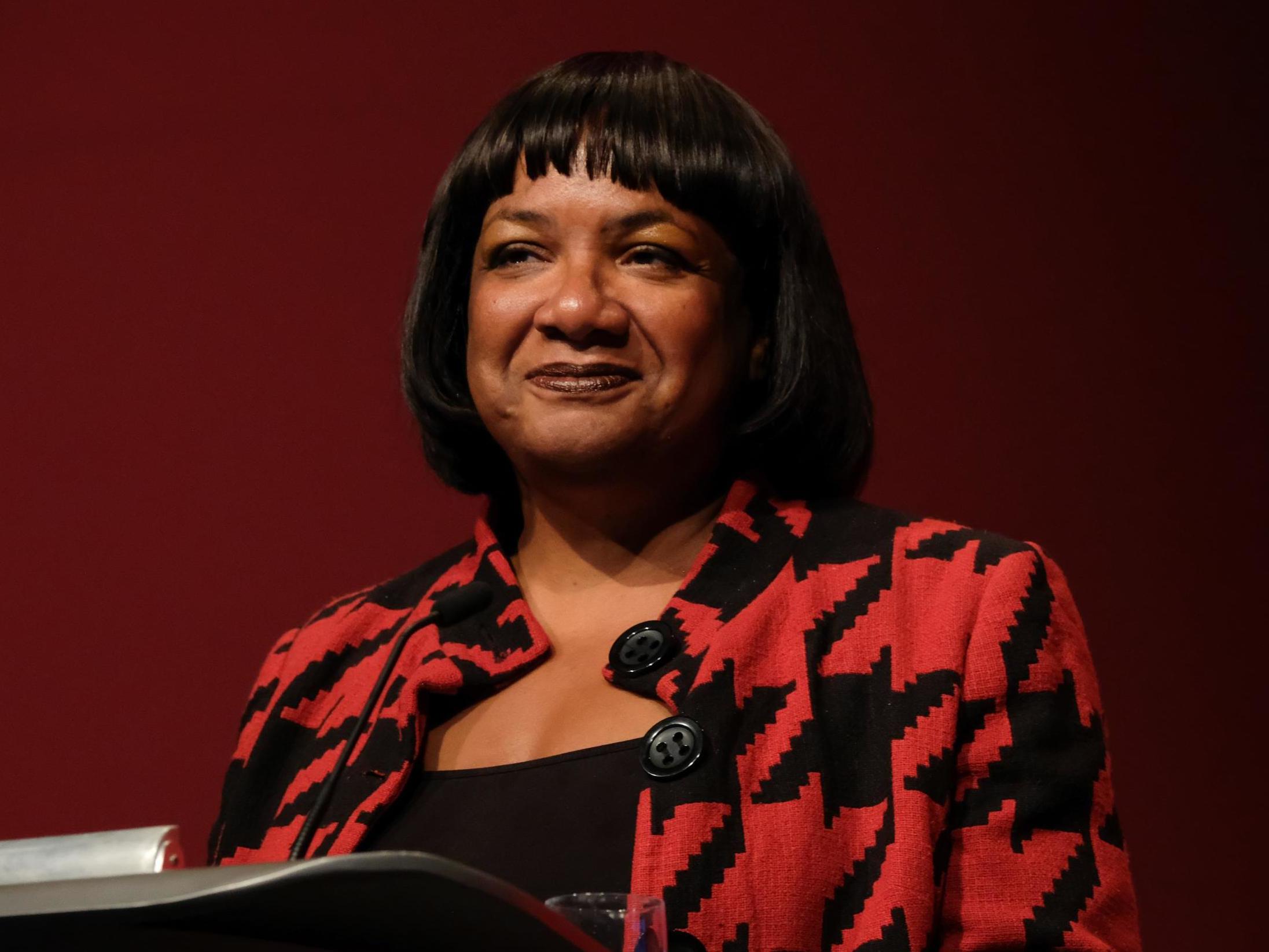People should register addresses when signing up for social media to help combat abuse, says Diane Abbott
A substantial number of female MPs are standing down citing online harassment

Your support helps us to tell the story
From reproductive rights to climate change to Big Tech, The Independent is on the ground when the story is developing. Whether it's investigating the financials of Elon Musk's pro-Trump PAC or producing our latest documentary, 'The A Word', which shines a light on the American women fighting for reproductive rights, we know how important it is to parse out the facts from the messaging.
At such a critical moment in US history, we need reporters on the ground. Your donation allows us to keep sending journalists to speak to both sides of the story.
The Independent is trusted by Americans across the entire political spectrum. And unlike many other quality news outlets, we choose not to lock Americans out of our reporting and analysis with paywalls. We believe quality journalism should be available to everyone, paid for by those who can afford it.
Your support makes all the difference.Diane Abbott has said people should have to register their addresses with social media platforms in order to tackle anonymous abuse online.
The Shadow Home Secretary spoke about her experience with online abuse during an interview on BBC Radio 4’s Today programme.
Data from Amnesty UK revealed that Abbott received half of all abuse sent to female MPs during the 2017 general election.
“My view is that we should make it harder for people to be anonymous online,” said Abbott, speaking to presenter Mishal Husain.
“They can have an anonymous identity [online] but websites [like] Twitter and Facebook, should have their real name and address.
"I believe the fact that people are completely anonymous has made this problem worse. When the police try and track down people who are abusing me, they find they can’t identify them. If [websites] had people’s real name and address, I think we’d be able to crack down.”
Abbott’s comments come as several prominent female MPs across all parties have announced they won’t be standing for Parliament in the December election.
Conservative cabinet minister Nicky Morgan and Liberal Democrat Heidi Allen both explicitly cited abuse they had received as one reason they would not be contesting their seats.
In a letter announcing her decision, Morgan – the MP for Loughborough – wrote of a “clear impact on my family,” and “abuse for doing the job of a modern MP”.
Heidi Allen – who defected from the Conservatives earlier in 2019 - also penned a letter to her South Cambridgeshire constituents, speaking of her weariness at abuse.
“I am exhausted by the invasion into my privacy and the nastiness and intimidation that has become commonplace,” Allen wrote.
“Nobody in any job should have to put up with threats, aggressive emails, being shouted at in the street, sworn at on social media, nor have to instal panic alarms at home.”
Labour MP Rachel Reeves added her voice to the discussion, writing a thread on “the experiences of women in politics” that highlighted how abuse has intensified in recent years.
“Death and rape threats are a daily occurrence for women MPs,” Reeves tweeted. “We have no option beyond putting on a brave face. But it’s immensely hard [...] I am not surprised that many women are leaving politics. The burden of abuse can sometimes feel like too much to bear.”
In her Today interview, Diane Abbott also testified there had been a notable increase in the abuse she received during her three decades in politics, attributing it to anonymity on social media.
“I’ve been an MP for over 30 years,” Abbott said. “The huge rise in abuse is partly to do with [being] online and partly to do with anonymity. I think we need to look at that.”
In 2016, Labour MP Jo Cox was murdered by a far-right terrorist after receiving abuse online. In the wake of her death there were calls for stronger responses to threats against MPs.
A specialist police unit launched to investigate crimes against politicians after Cox’s death found complaints of abuse doubled from 2017 to 2018.
Join our commenting forum
Join thought-provoking conversations, follow other Independent readers and see their replies
Comments